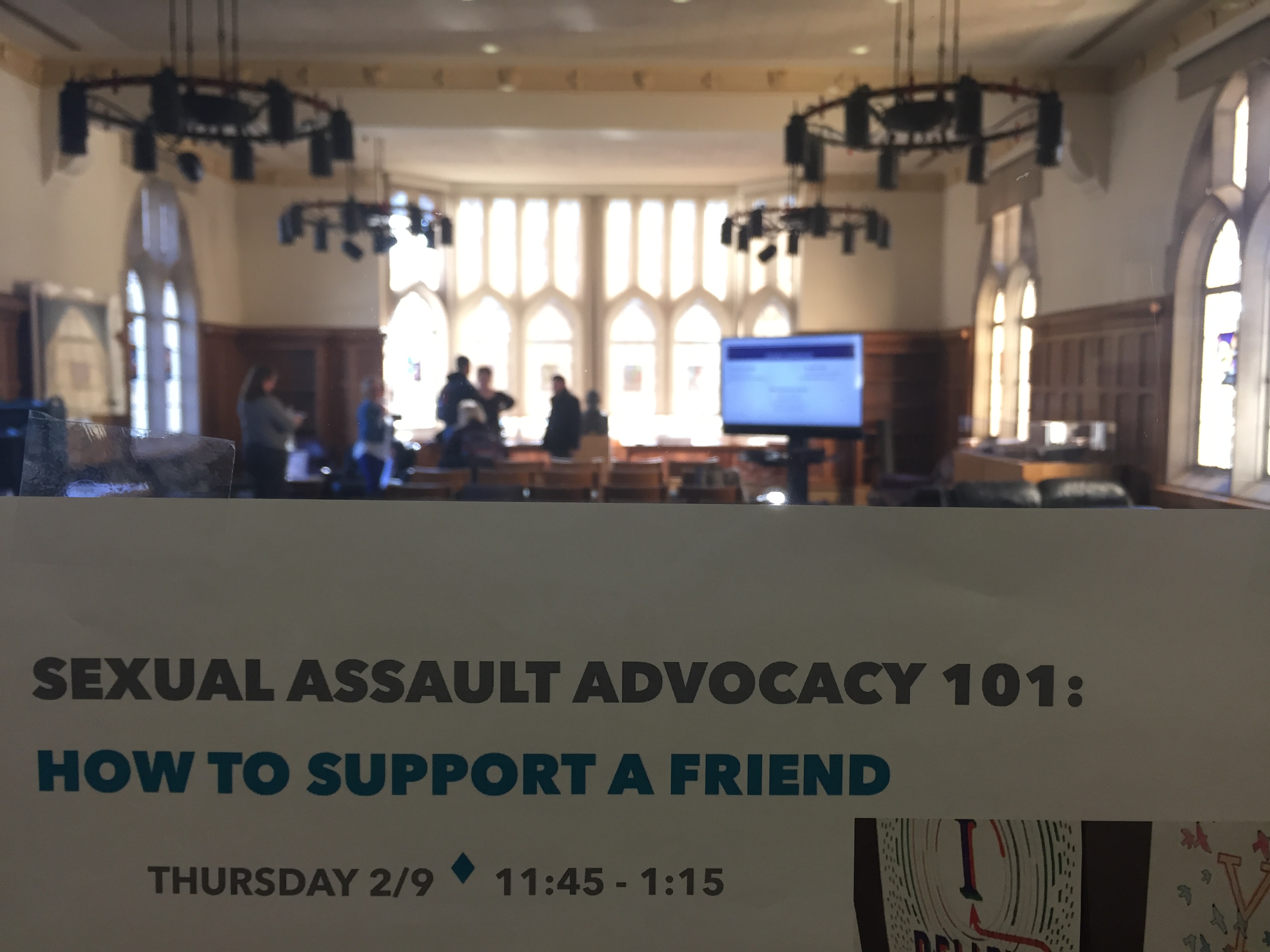St. Thomas will work with the Sexual Violence Center, a local nonprofit, to form a closed support group for victim survivors of sexual violence later this month on Feb. 23.
On Feb. 9, representatives of the Sexual Violence Center spoke to St. Thomas students about sexual violence, advocacy and announced the collaborative effort with the university. The talk focused on what St. Thomas students can do to support friends who have been victims of sexual violence.
“Of course, we know how common this issue is, but hearing from people who are actively in the midst of trying to support someone right now is just a reminder of how important this work is,” said Sawyer Plotz, education program coordinator at the Sexual Violence Center.
The talk was organized by Emily Erickson, sexual misconduct prevention coordinator at St. Thomas, and Undergraduate Student Government.
“We really just wanted to show other students that we were gonna tackle the big issues, that we’re gonna be on campus leaders and live up to that title,” said James Copland, St. Thomas senior and vice president of academic affairs with USG. “The goal is to make sure that we can enact positive change on campus.”
For attendees of the event, such as junior Annika Wahlquist, a large takeaway was what can be done to support friends and victim survivors.
“When you think of someone disclosing to you about sexual violence, you kind of get a little overwhelmed and think ‘What should I say? What should I do? What’s best thing to say?’ And sometimes it can be as simple as listening, supporting and validating,” Wahlquist said.
It is important for students to know what they can do as advocates, according to both Erickson and the Sexual Violence center.
“I know that most students don’t formally report to the university or don’t go to a confidential place like [Counseling and Psychological Services] right away. Usually the first person someone tells is a friend,” Erickson said. “Having friends feeling like they’re equipped to respond in a caring way, I think, is really important and helps people down the line as they heal.”
Plotz emphasized that advocacy is a skill necessary in combating the culture surrounding sexual violence.
“When sexual violence happens to a person, their power and control has been taken away,” Plotz said. “Being an advocate for someone or with someone, I think, is about facilitating a process and providing options where they can start to take some of their own power and control back.”
With sexual violence and assault at the forefront of issues on college campuses nationwide, organizations like the Sexual Violence Center encourage open dialogue. One way they hope to do this with St. Thomas is through the closed support group starting up late February.
“It’ll be facilitated by advocates from the Sexual Violence Center and it still has open spots, so if people want to seek that out, the best way to get connected is to call SVC’s crisis line and say you’re interested in the support group,” said Plotz.
The support group will also be open to students from other MIAC schools like Macalester, Augsburg and Hamline.
“Sometimes people think support groups are all about you going, talking about your experience and listening to other people. Certainly, people will have an opportunity to share their experiences, but that’s not the focus every week and people only share what they’re comfortable sharing,” Erickson said. “It’s more about finding community with other people.”
The Sexual Violence Center still has open spots in the support group for students.
“Hopefully, as more people talk about this, there will be less of a silence and a stigma around it,” Plotz said. “We can hopefully be making changes in our own lives and broader culture so that sexual violence will not be nearly as common as it is right now.”
Maya Shelton-Davies can be reached at shel1181@stthomas.edu



